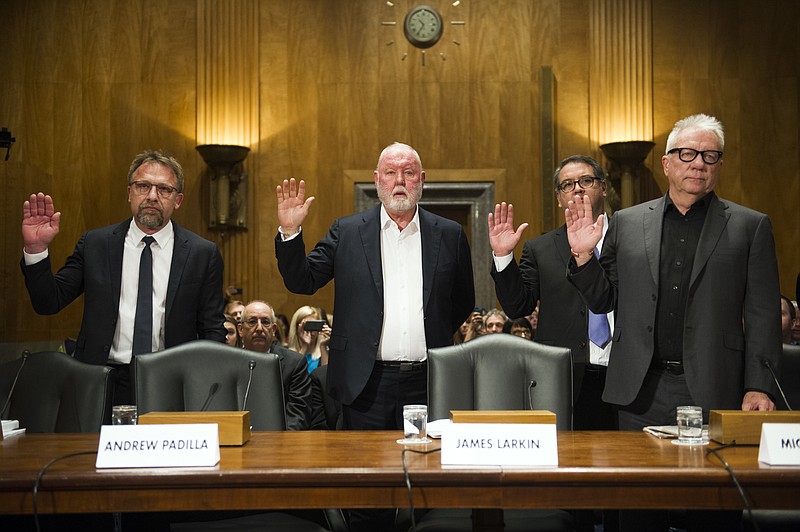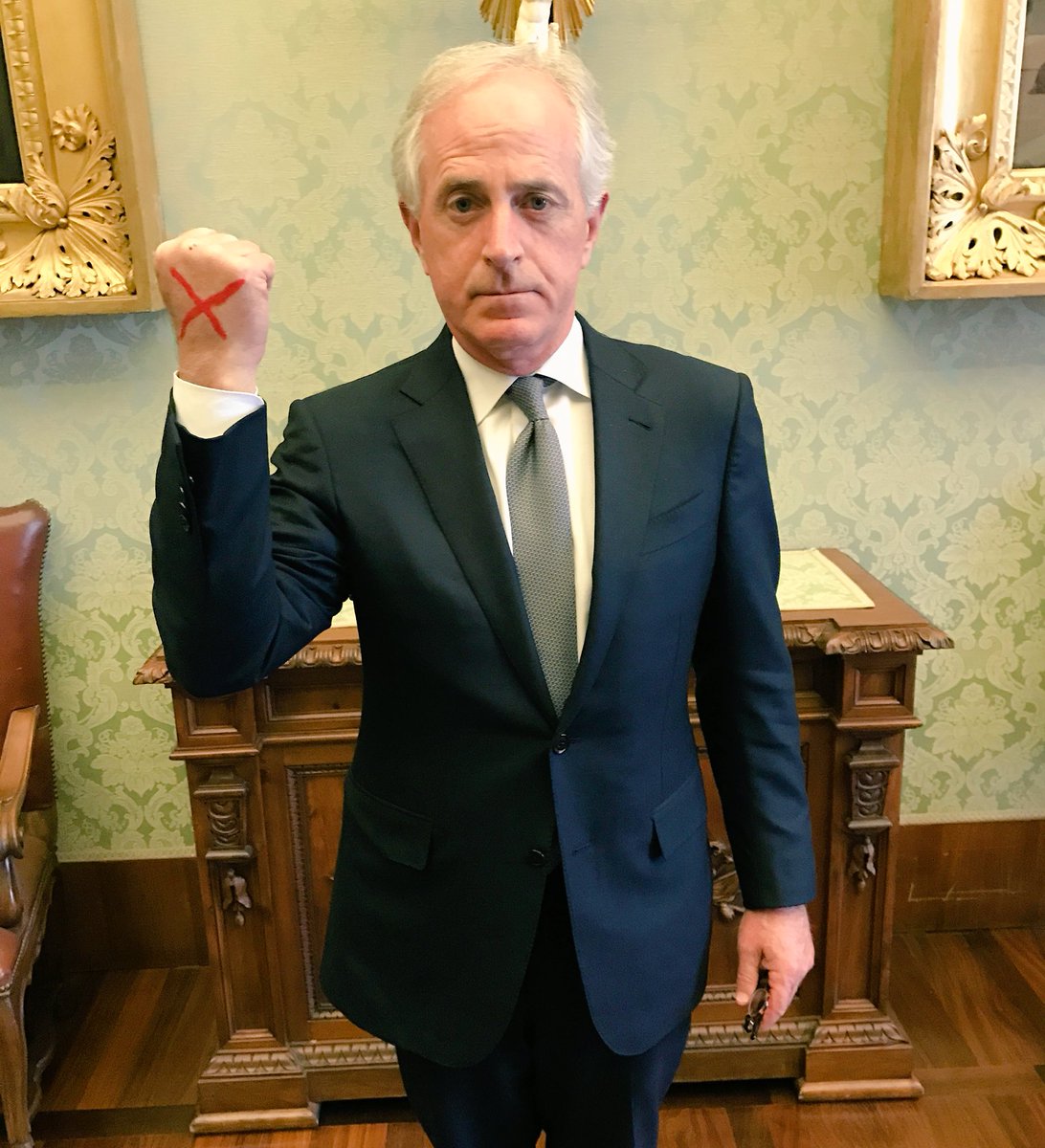Kubiiki Pride was scrolling through ads on Backpage.com when she saw an ad selling something that belonged to her. It was her missing 14-year-old daughter.
The teen had been missing for nine months when her mother found her partially clad and provocatively posed in photos posted on the "adults only" section of the popular classifieds site.
Desperate, Pride posed as a customer and "ordered" her own daughter from the site.
Now with a shaved head and cigarette burns covering 80 percent of her body, the sexually trafficked girl found herself back in the arms of her mother.
 On Jan. 10, in front of the Senate Permanent Subcommittee on Investigations chaired by Sen. Rob Portman, Ohio-R, Pride and other parents of children trafficked on Backpage shared their stories. Appearing before the senators that day, Backpage CEO Carl Ferrer and other top executives pleaded their First and Fifth Amendment rights to avoid answering senators' questions.
On Jan. 10, in front of the Senate Permanent Subcommittee on Investigations chaired by Sen. Rob Portman, Ohio-R, Pride and other parents of children trafficked on Backpage shared their stories. Appearing before the senators that day, Backpage CEO Carl Ferrer and other top executives pleaded their First and Fifth Amendment rights to avoid answering senators' questions.
The hearing, which included a 53-page report containing more than 1 million internal documents from Backpage, became another of many recent victories in the fight to end human trafficking.
In December 2016, Sen. Bob Corker, R-Tenn., saw his ambitious End Modern Slavery Initiative passed into law. On Jan. 9, Backpage shut down its "adults only" section; parents of children trafficked on the site are now seeking legal restitution. Also in January, Hartsfield-Jackson Atlanta International Airport became the first airport to sign the Tourism Child-Protection Code of Conduct, which is aimed at preventing child sex tourism and trafficking and was created by ECPAT US, an anti-trafficking organization. On Feb. 10, "I Am Jane Doe," a documentary featuring the stories of Pride's daughter and others like her, was released; and Thursday was the #ENDIT Movement's "Shine A Light on Slavery Day," which saw international political leaders, celebrities, athletes and activists stamping their hands with the anti-slavery red "X" on Twitter feeds and Instagram posts. Corker even met with leaders at the Vatican on Thursday to discuss ways they can join efforts to end modern slavery.
FOR SALE: CHILDREN
"Rape. Child. Virgin. Lolita. Cheerleader. Teen. Fresh."
The words rang out at the Senate's Permanent Subcommittee on Investigations' hearing. They were from ads placed on Backpage.com.
Once owned by media company Village Voice, the popular classified ads website sells everything from furniture to cars, and, as senators at the hearing declared, children.
"Those children were sold, and [Backpage.com] simply tried to sanitize it. That, ladies and gentlemen, is the definition of evil," said Sen. Claire McCaskill, D-Mo.
Citing the Communications Decency Act, which provides publishers and internet communicators with immunity, the executives of Backpage had for years dodged lawsuits related to child trafficking.
At the January hearing, the subcommittee presented its findings that senators said proved Backpage employees edited ad language that signaled to the public and investigators that children were for sale on the site.
The internal Backpage documents revealed that, instead of deleting the ads that sold children when they were discovered by staff, Backpage moderators were instructed to just delete code words: fresh, young, rape, Lolita, virgin - signifying words that let users know an underage victim was for sale.
Though the incriminating words were edited, the children remained for sale.
"As early as 2006, Backpage executives began instructing staff responsible for screening ads (known as "moderators") to edit the text of adult ads to conceal the true nature of the underlying transaction," the report said.
Up to 80 percent of the ads on Backpage were edited, the report said, adding that Backpage does a lucrative business in the sex trade.
"Backpage is a market leader: In 2013, it reportedly netted more than 80% of all revenue from online commercial sex advertising in the United States," the report said.
Also testifying that day were parents of children trafficked on Backpage, parents like Kubiiki Pride.
Even after Pride purchased her daughter from the site, Backpage refused to take down the ad featuring her daughter, telling Pride that since she had not paid for the ad, she had no authority to request its removal.
"I often wonder where we would be if they just took down the pictures, but they didn't when I asked," Pride said. "They made the decision to continue advertising my child for sale to anyone willing to buy her. Backpage.com's blatant disregard for human life is unacceptable, and they must be held accountable for their role in damaging America's children."
Though she had called Backpage many times asking for her daughter's ad to be taken down -the ad was eventually removed - the appearance before the subcommittee was the first time Pride felt she was heard.
"It was the most amazing feeling ever to finally be heard by the subcommittee and for them to find evidence of Backpage's wrongdoings," Pride said. "For years, I tried to tell everyone that would listen about the crimes Backpage was committing, but now more of the government is becoming aware and I am hopeful a change is coming. The change I speak of is to the CDA [Communications Decency Act]. It is a very necessary step to holding all parties involved in the selling of children responsible.
"My daughter and our entire family still struggle with issues resulting from the crimes done to my baby. The pain from this type of trauma doesn't end. Everyone deals with it differently, but the fact that we have her back to love, hold and grow with is the best blessing I could ever ask for."
INTERSTATE TRAFFICKING
While Backpage.com and other sites have been virtual hubs for sex trafficking, victims still must be transported to the clients. Traffickers often move victims from city to city to avoid detection and to find new clients.
Celia Williamson is the founder and president of a National Research Consortium on Commercial Sexual Exploitation comprised of scholars who research human trafficking. She said truck stops and highways are trafficking staples.
"We've had victims that have been forced to work the truck stops," Williamson said. "That's really been the bread and butter of trafficking."
Portman, who led the Senate subcommittee's investigation into Backpage.com and who has been a vocal advocate for anti-trafficking efforts, said raising public awareness of the Interstate 75 trafficking route is essential.
"The press reports of human trafficking along the I-75 corridor are heartbreaking," Portman said. "In Ohio, anti-trafficking advocates have worked tirelessly to ensure that law enforcement [personnel] are better able to recognize the signs of trafficking. We must continue to raise public awareness of this crime all along I-75."
Lyn Thompson began Truckers Against Trafficking to raise awareness and enlist truckers as eyes and ears along the highways to spot traffickers and their victims. TAT developed a multi-pronged approach to educating on highway trafficking, including a touring exhibit that is housed in a 48-foot trailer. The exhibit displays items used by traffickers, including a dog tag that a victim was forced to wear.
"I know this from talking to multiple survivors," Thompson said. "Traffickers are continually moving people they have for sale along routes like the I-75 corridor. They do this so their victims don't know where they are; [the victims] are always fresh, so the victims can't make a long-term relationship with someone who might try to save them. There is a girl that was trafficked out of the Atlanta area, and they trafficked her all over the U.S. and Mexico. And, when they took her to the Kentucky Derby, they trafficked her all along the way."
"Every bus terminal, every airport, every place that is used for transportation of victims is a place that needs to have education and awareness so that people can make a call if they see it happen," Thompson said.
Jan Lennon, director of security at Hartsfield-Jackson airport in Atlanta, said that the first thing employees are taught is: If you see something, say something. "We have pledged we are going to stop trafficking period."
PREVENTION
Though rescue is critical to the fight against trafficking, the University of Toledo's trafficking expert, Williamson, said prevention and curb of demand must be addressed.
"Rescue and restore is wonderful and it has served us well," Williamson said. "But I think that the question is deeper than just rescuing.
"You want to curb demand?" Williamson asked. "You have to go as deep as the movies you show, the way you sell Coca-Cola. The way you curb [demand] is not to have a misogynistic society. We sit our girls at 3 or 4 years old and they learn about self-identity. We show them 'Beauty and the Beast' where Belle goes to the castle and she tries to change the Beast into the beautiful prince. In the real world, we call that trauma bonding. We call that Stockholm Syndrome."
THE FIGHT CONTINUES
But, while there is still a demand for and easy supply of children to trap in sexual slavery, Corker and anti-slavery advocates are committed to the fight to free them.
During Thursday's Shine a Light on Slavery Day, Corker's Twitter feed was full of red-X'ed hands offering support for the cause. In a personal tweet, he quoted his friend and fellow anti-slavery crusader, Louie Giglio: "If not you, who? If not us - if we don't engage in this fight, who will?"

